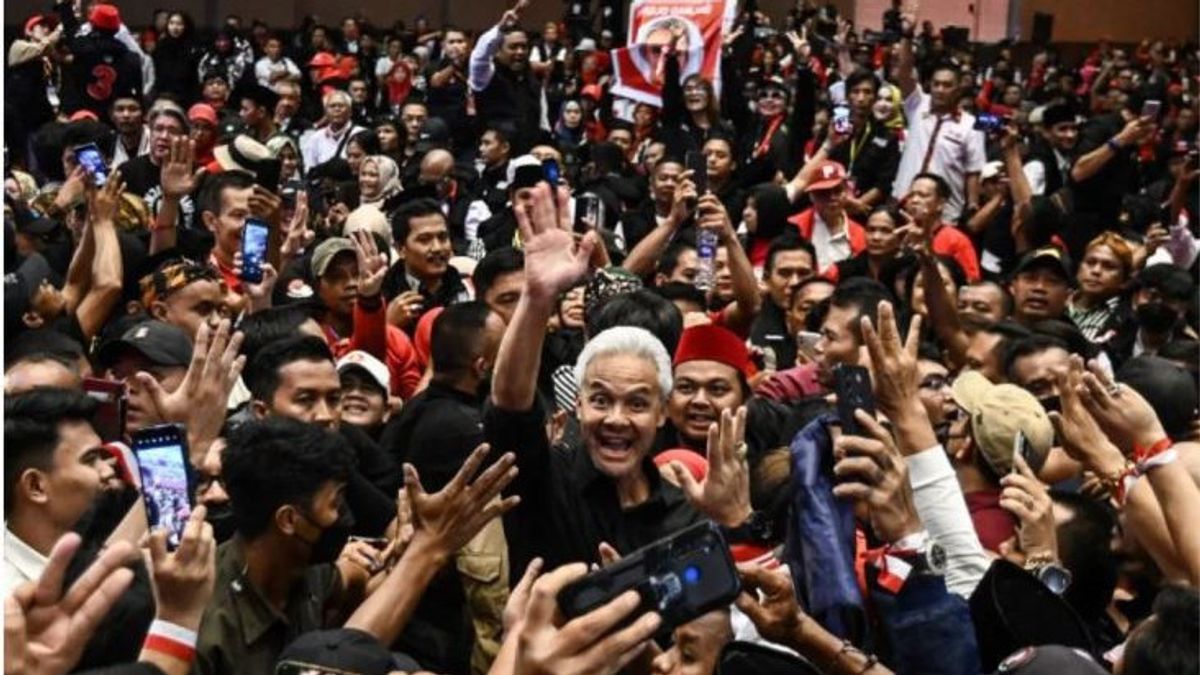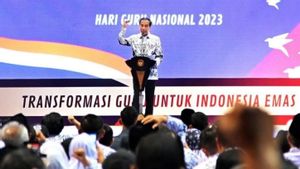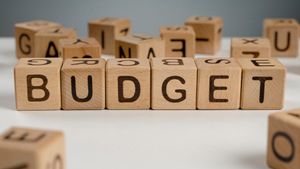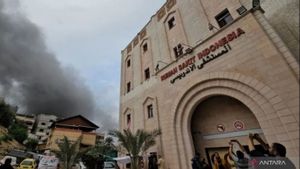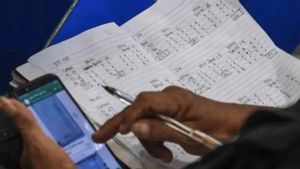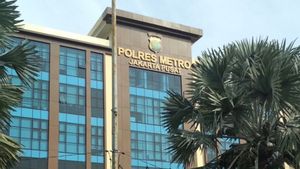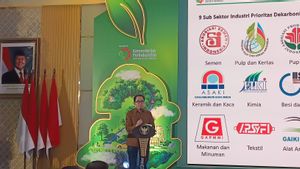JAKARTA The 2024 election campaign period has started Tuesday, November 28, 2023 and will end on February 10, 2024 or four days before voting day. This five-year democratic party is believed to have a big impact, not only politically but also economically on the Indonesian nation.
Next year, Indonesia will hold elections simultaneously. The first is the presidential and vice presidential elections as well as members of the legislature which will both be held on February 14, 2024. Meanwhile, on November 27, 2024, a simultaneous regional head elections (Pilkada) will be held.
In addition to having an impact on social politics, this five-year democratic party is also believed to affect the economy.
In terms of politics, elections are a means for citizens who participate in the democratic process. In addition, the community also plays a role in determining the figure and direction of regional maupu leadership within a certain period.
Meanwhile, in the economic sector, elections will affect the dynamics of the national economy. According to experts, political activities have the potential to increase public consumption, starting from preparation to the implementation of the election.
Secretary of the Coordinating Ministry for Economic Affairs Susiwijono Moegiarso said the 2024 election campaign period would have a positive impact on the economy on a number of sectors.
"For some sectors, if we look at the campaign for 2.5 months starting November 28, it will definitely have a positive impact on several sectors, starting from the convection sector, printing, advertising, media, then transportation, logistics, food, drinks, and also several entertainment services sectors," said Susiwijono, quoting Antara.
"Later, if the campaign is certain with various people's stages and so on, everything will be pushed," he added.
The euphoria of the election campaign has indeed been felt in various regions. The agenda for visiting presidential and vice presidential candidates to various regions is increasingly routine. Not only at the presidential election level, but candidates for legislative members also continue to work to vote in their electoral districts.
We see various billboards participating in the multi-pilties on the streets. The attributes of supporting pairs of presidential and vice-presidential candidates and supporting political parties are increasingly vibrant to decorate almost every corner.
Seeing the rampant circulation of banners, posters, billboards, and various other campaign attributes, it can be said that the general election has also stimulated the business of a number of industrial sectors.
Director of the Center of Economic and Law Studies (Celios) Bhima Yudhistira said the textile and printing industry was among the sectors most affected by the start of the election campaign.
The stages of the election campaign began to show that sales of campaign clothes and attributes will increase compared to the previous month. First, the party t-shirt and legislative businesses will increase dramatically. For example, if there is a campaign or convoy of supporters, the T-shirt attributes are still in demand," Bhima told VOI.
In addition to the textile industry, other sectors that were blessed during the election were the printing industry, because the voting system was still manual using ballot paper. In the 2019 election, the growth of the paper and printing industry rose rapidly in the run-up to the election.
Not only printing ballots, requests for billboards and the like also increased when the election was a means of introducing candidates who were political contestants.
SEE ALSO:
The food and beverage industry to accommodation and lodging providers are also flooded with sustenance as a result of the election. This happens because of the many meeting agendas, meetings, and campaigns that require consumption to gathering places ahead of the election.
Finally, other sectors that also felt the positive impact of the election were the communication and information sector considering the fairly large spending on political advertising. Meta Platform reported that in the period April 2023 to June 29, 2023, the value of political advertising transactions and elections on a number of social media channels reached Rp10.9 billion.
"Sectors that grew during the election between renting places, hotels, restaurants, event organizers, printing, advertising, print and electronic media, stage rentals, cultural arts services, to transportation rental services," explained Bhima.
Money politics or polymer politics is often seen as negative during the election. Money politics is an attempt to influence voters (voters) or election organizers in exchange for material or others. Simply put, money politics is a form of bribery.
The practice of money politics is then concluded as the parent of corruption. But from another point of view, especially during the election, money politics can also encourage the economy of the community. Especially the lower middle class.
Usually during the election, there is a massive circulation of money for various purposes of political spending in order to gain the popularity of the party or a contested figure. Thus, activities around the general election encourage increased spending and public consumption.
This is in accordance with a study by the Institute for Economic and Community Research, Faculty of Economics, University of Indonesia. Based on the analysis in the 2014 election, it was found that the amount of money circulating which had the most positive and significant impact on the economy at that time was in the period around the election, both in the quarter before the election and in the quarter during the election.
Part of the money politics will encourage the demand for basic necessities and cigarettes. Usually cigarette sales increase during the election. There are also those who spend money on the needs of school children and pay off debts. But yes, the segment is middle and lower," Bhima explained.
At the same time, Bhima explained that the upper middle class during the election actually tends to be frugal and fat up deposits in banks, especially accounts above IDR 2 billion.
"They are worried that the commotion and political dramas will have an impact on security stability, there will also be policies and policies in the next five years," he added.
The English, Chinese, Japanese, Arabic, and French versions are automatically generated by the AI. So there may still be inaccuracies in translating, please always see Indonesian as our main language. (system supported by DigitalSiber.id)
